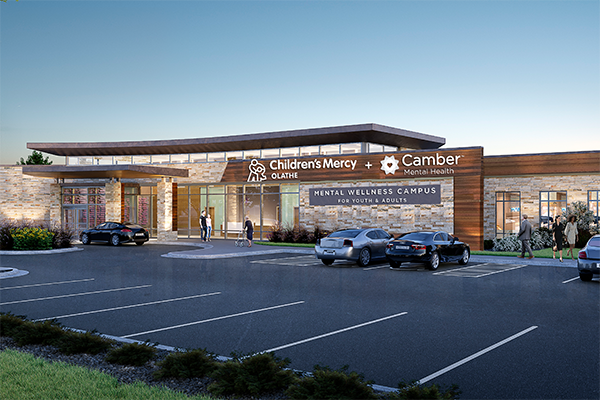- Locations
- How We Help
Overview
As the regional leader in youth mental health treatment, our innovative services help youth achieve health and wellness.
Treatment Programs
- Admissions
Overview
Learn how to admit your child to a Camber treatment location or make a client referral.
- Youth Disorders
- Resources
Overview
Our free resources help you stay informed and educated about mental health, brain development, and childhood trauma as well as how Camber is working toward building healthier communities.
- About Us
Overview
Our philosophy is to provide collaborative, compassionate and effective care through the use of timely, individualized treatment planning.
Learn More About Us
Inpatient Mental Health Treatment
We changed our name! We’re now serving our community as Camber, previously known as KVC Hospitals. Click here to learn more about this exciting change.
Camber provides inpatient acute hospital treatment for youth ages 6 to 18 who are struggling with depression, anxiety, suicidal thoughts, the impacts of trauma, and other mental health conditions. Our goal is to help your child stabilize and return home as soon as safely possible, equipped with the skills, support, and resources they need to continue treatment in their community.
We provide a patient-centered approach to treatment, which supports and encourages family involvement. We believe parents/guardians are significant partners in the treatment process and can help us best support their child when they are involved in therapy and discharge planning.
If you’re concerned about your child’s mental health or would like to make a client referral to Camber:
Inpatient Treatment Includes:
- Full medical, clinical and nursing assessment within the first 24 hours of admission
- Intensive psychiatric care and medication management
- Individual, family and group therapy sessions
- Case coordination
- 24/7 Support and supervision from our skilled nursing staff
- Innovative treatment and education to teach youth about their brains and how to regulate their emotions
Find a Camber location offering inpatient treatment near you.
What to Expect During Admission
When a client or family arrives for admission, a nurse or other healthcare professional will meet them in our lobby and escort them to one of our visiting rooms. In this room, Camber will:
- Ask parents/guardians to complete the admission paperwork, providing consent and contact information
- Provide education about the treatment program and our highly-trained staff
- Assign the client a bedroom
- Integrate the client into therapeutic activities as soon as possible
We know that sometimes it can be difficult for parents/guardians to be onsite with their child due to different life circumstances. When that is the case, as long as the parents/guardians send us the completed consent paperwork we can complete the admission process over the phone. Click here for answers to frequently asked questions during the admission process.
What to Expect at Discharge

To help ensure continued success, our treatment team works with each child’s parents/guardians to create an aftercare plan and coordinate follow-up care in their home community. We believe that follow-up services are essential to a child’s sustained progress, and when possible, we will help schedule these appointments.
Aftercare services might include individual therapy, family therapy/education, specialized educational services, medication management, psychosocial/supportive groups, substance use treatment, attendant care and/or case management services.
If you’re concerned about your child or need to refer a client for treatment, complete the form below:





